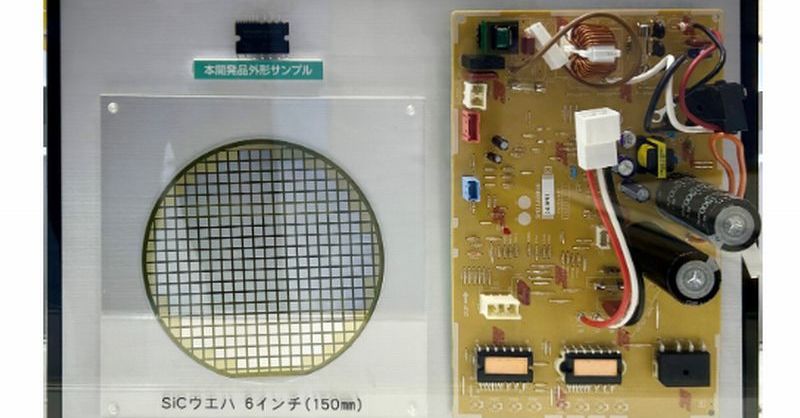New IPM with SiC: Revolutionizing AC Power Consumption
The power electronics industry is buzzing with excitement over the arrival of a new generation of Intelligent Power Modules (IPMs) incorporating Silicon Carbide (SiC) technology. This innovation promises a significant reduction in AC power consumption, marking a pivotal leap forward in energy efficiency and sustainability. This article delves into the details of this breakthrough, exploring its implications for various sectors and the future of power management.
What are Intelligent Power Modules (IPMs)?
IPMs are pre-assembled modules integrating power semiconductors, gate drivers, and protection circuitry onto a single substrate. This integrated approach simplifies design, reduces component count, and improves overall system reliability. Traditionally, IPMs have utilized IGBT (Insulated Gate Bipolar Transistor) technology. However, the introduction of SiC MOSFETs (Metal-Oxide-Semiconductor Field-Effect Transistors) represents a paradigm shift.
Advantages of Traditional IPMs:
- Simplified Design: Easier integration into power systems.
- Reduced Component Count: Leading to smaller and more compact designs.
- Improved Reliability: Fewer connections and components mean fewer potential points of failure.
The SiC Revolution: Why it Matters
Silicon Carbide (SiC) is a wide-bandgap semiconductor material offering superior performance compared to traditional silicon. This translates into several key advantages when incorporated into IPMs:
- Higher Switching Frequencies: SiC MOSFETs can switch significantly faster than IGBTs, leading to smaller passive components (inductors and capacitors) and reduced system size.
- Lower Switching Losses: The reduced switching times translate directly into lower energy losses during operation, resulting in greater efficiency.
- Higher Operating Temperatures: SiC devices can operate at higher temperatures, increasing system robustness and potentially reducing cooling requirements.
- Reduced AC Power Consumption: The combination of lower switching losses and higher efficiency directly contributes to substantially lower AC power consumption. This is the key advantage driving the excitement surrounding these new IPMs.
Impact Across Industries
The implications of SiC-based IPMs extend far beyond mere energy savings. This technology is poised to revolutionize numerous sectors:
- Renewable Energy: Increased efficiency in solar inverters and wind turbine converters maximizes energy harvesting and reduces grid losses.
- Electric Vehicles (EVs): Improved motor control and reduced energy consumption translate to extended driving range and faster charging times for electric vehicles.
- Industrial Automation: Higher efficiency in motor drives and other industrial equipment lowers operational costs and reduces carbon footprint.
- Data Centers: Reduced power consumption in server power supplies contributes to significant cost savings and environmental benefits.
Specific Applications Benefiting from SiC IPMs:
- High-power motor drives: Found in industrial machinery, EVs, and other applications.
- Uninterruptible power supplies (UPS): Providing reliable power backup with enhanced efficiency.
- Power factor correction (PFC) circuits: Improving power quality and reducing energy waste.
Future Outlook and Challenges
While the advantages are compelling, challenges remain:
- Cost: SiC-based IPMs are currently more expensive than their IGBT counterparts. However, economies of scale and technological advancements are expected to lower costs over time.
- Availability: Increased demand needs to be met by scaling up SiC manufacturing capacity.
Despite these challenges, the future of SiC-based IPMs looks bright. Continuous research and development are driving down costs and enhancing performance, promising a widespread adoption of this transformative technology in the years to come.
Conclusion
The introduction of IPMs incorporating SiC technology represents a significant step forward in power electronics. Its ability to drastically reduce AC power consumption opens new possibilities for increased energy efficiency, reduced operational costs, and a more sustainable future. As the technology matures and becomes more widely available, we can expect to see its transformative impact across a broad range of applications. Stay tuned for further developments in this exciting field!
Keywords: SiC IPM, Intelligent Power Module, Silicon Carbide, AC Power Consumption, Energy Efficiency, Power Electronics, Renewable Energy, Electric Vehicles, Industrial Automation, Data Centers, Power Management, MOSFET, IGBT.
